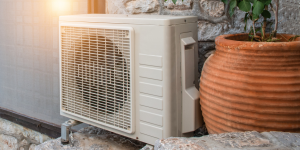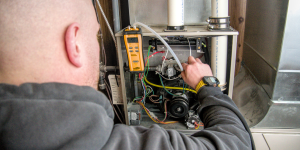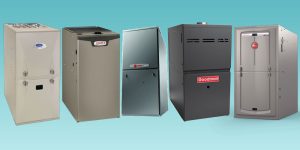As homeowners become increasingly eco-conscious, the debate between heat pump vs gas furnace intensifies, especially in cooler regions. Understanding the differences, benefits, and considerations is crucial for making an informed decision for your home.
Understanding Heat Pumps and Gas Furnaces
Heat pumps transfer heat from one place to another using electricity. In winter, they extract heat from the outside air and move it indoors; in summer, the process reverses, providing cooling. This dual functionality offers year-round climate control.
Gas furnaces operate by burning natural gas, these systems generate heat that is distributed throughout the home via ducts. They are traditionally favored in colder climates due to their ability to produce high heat levels quickly.
5 Heat Pump Advantages
- Energy Efficiency: Heat pumps can achieve efficiencies ranging from 200% to 540%, meaning they provide 2 to 5.4 kWh of heat for every 1 kWh of electricity consumed.
- Environmental Impact: Unlike natural gas furnaces, heat pumps rely on electricity and can be powered by renewable energy sources, reducing greenhouse gas emissions.
- Heating and Cooling: Heat pumps serve as both a heating and cooling system, eliminating the need for a separate air conditioning unit.
- Long-Term Savings: Although upfront costs can be higher, the operational savings over time make heat pumps a cost-effective choice.
- Government Incentives: Many federal and provincial programs offer rebates for switching to heat pumps, making them more affordable for homeowners.
5 Advantages of Natural Gas
- Reliable in Cold Climates: Gas furnaces provide consistent heating even in extreme temperatures, making them a preferred choice for Ottawa’s harsh winters.
- Lower Upfront Costs: Compared to heat pumps, gas furnaces typically have lower installation costs.
- Fast Heating: Natural gas systems produce heat instantly, whereas heat pumps may take longer to reach desired temperatures in extreme cold.
- Existing Infrastructure: Many homes already have gas connections, making installation easier and reducing transition costs.
- Operational Efficiency: High-efficiency gas furnaces operate at up to 98% efficiency, ensuring minimal energy waste (Natural Resources Canada).
Performance in Ottawa’s Climate
Ottawa experiences cold winters, making the performance of heating systems in low temperatures a critical consideration. Modern cold-climate heat pumps are designed to operate efficiently in temperatures as low as -25°C. However, during extreme cold spells, their efficiency can decrease, and a backup heating source might be necessary.
Gas furnaces, on the other hand, are known for their reliability in harsh winters, providing consistent heat regardless of outdoor temperatures.
Cost Considerations for Heat Pumps vs Natural Gas
- Initial Investment: Heat pump installations can be more expensive upfront compared to gas furnaces. Depending on the size of the home and the type of unit, installation costs can range from a few to several thousand dollars. Gas furnaces generally have lower initial costs.
- Operational Costs: Heat pumps, due to their higher efficiency, can lead to savings on energy bills over time. However, the actual savings depend on local energy prices. In regions where electricity is more expensive than natural gas, operational costs for heat pumps might be higher.
Hybrid Systems: A Balanced Approach
For Ottawa homeowners seeking both efficiency and reliability, hybrid systems that combine heat pumps with gas furnaces offer a compelling solution. In such setups, the heat pump handles heating and cooling during milder temperatures, while the gas furnace provides supplementary heat during extreme cold. This approach ensures year-round comfort and optimized energy use. Hybrid systems can also prolong the lifespan of both components by alternating their usage based on seasonal demands.
Recommendations for Ottawa Homeowners
- Assess Your Home’s Insulation: Before transitioning to a heat pump, ensure your home is well-insulated to maximize efficiency.
- Consult Local Experts: Engage with HVAC professionals familiar with your climate to determine the best system for your needs.
- Explore Incentives: Investigate government and utility company incentives, such as tax credits and rebates, to offset installation costs.
- Consider a Hybrid System: If you’re hesitant about a full transition, a hybrid system can offer the benefits of both technologies.
By carefully evaluating these factors, Ottawa homeowners can make informed decisions that align with both their comfort needs and sustainability goals.
Final Thoughts
As energy prices fluctuate and environmental concerns grow, the heat pump vs. gas furnace debate becomes increasingly relevant for homeowners looking to balance cost, efficiency, and sustainability. Switching to a heat pump or hybrid system is a forward-thinking choice, offering increased energy efficiency and boosting property values due to their modern, eco-friendly appeal. Governments and utility companies often provide incentives, such as tax credits and rebates, to encourage the adoption of these technologies, making the transition more affordable.
Ottawa homeowners have plenty of options when it comes to heating their homes, so make sure to consider energy efficiency, costs, and climate adaptability before making your decision.
Looking to install a heat pump or furnace in Ottawa? Contact the experts at Wamboldt HVAC to discuss your options and explore available rebates today.








